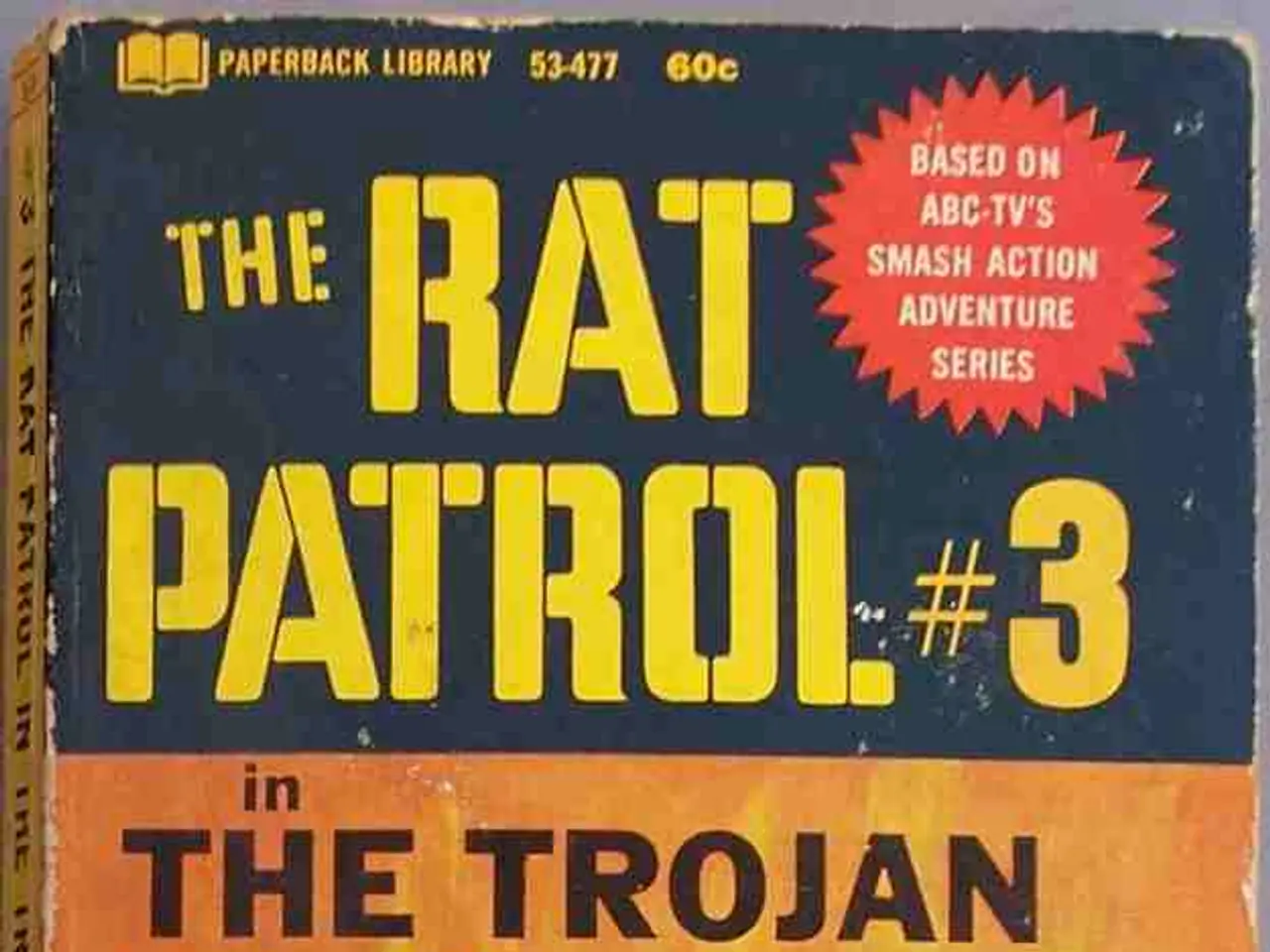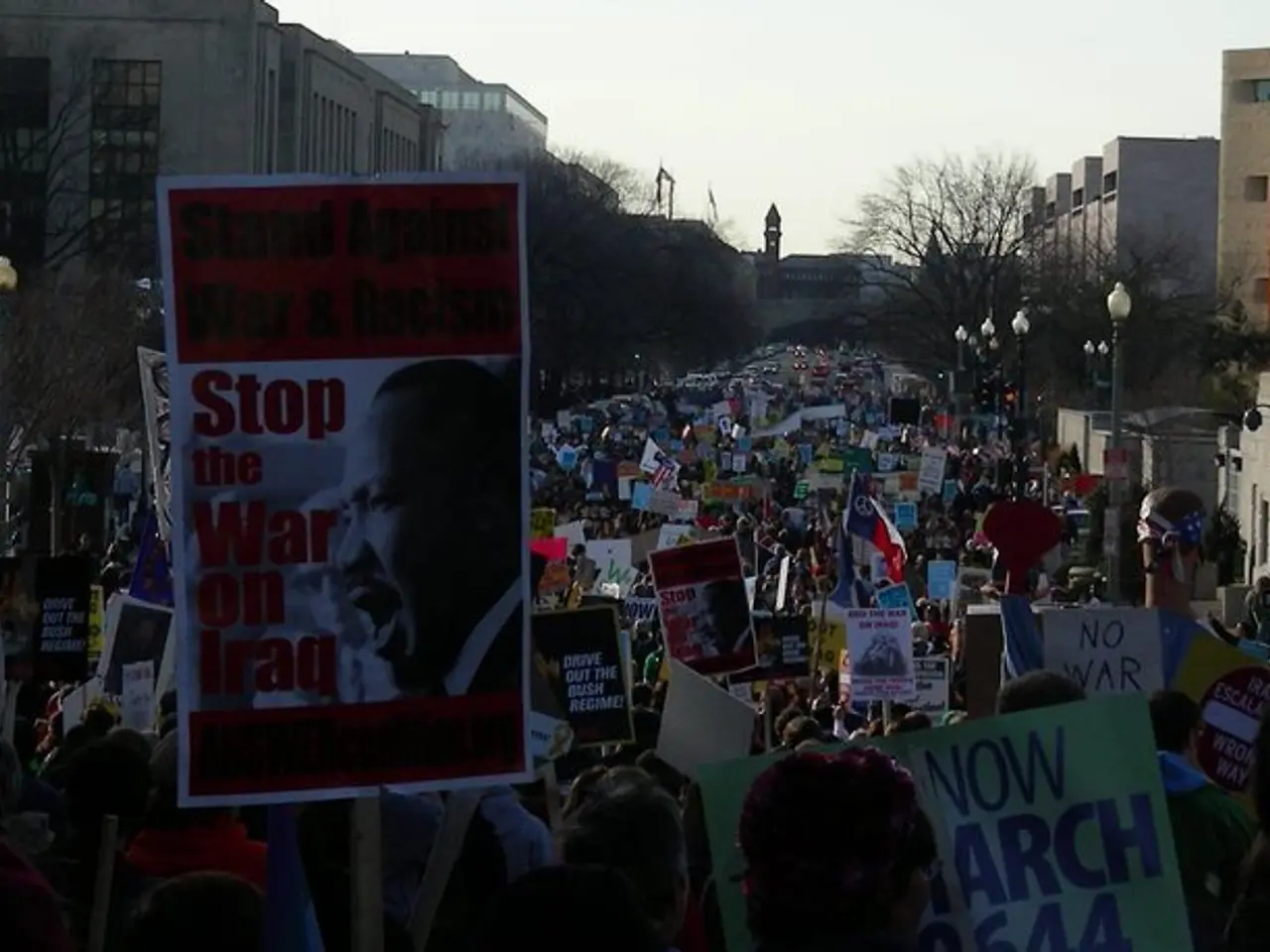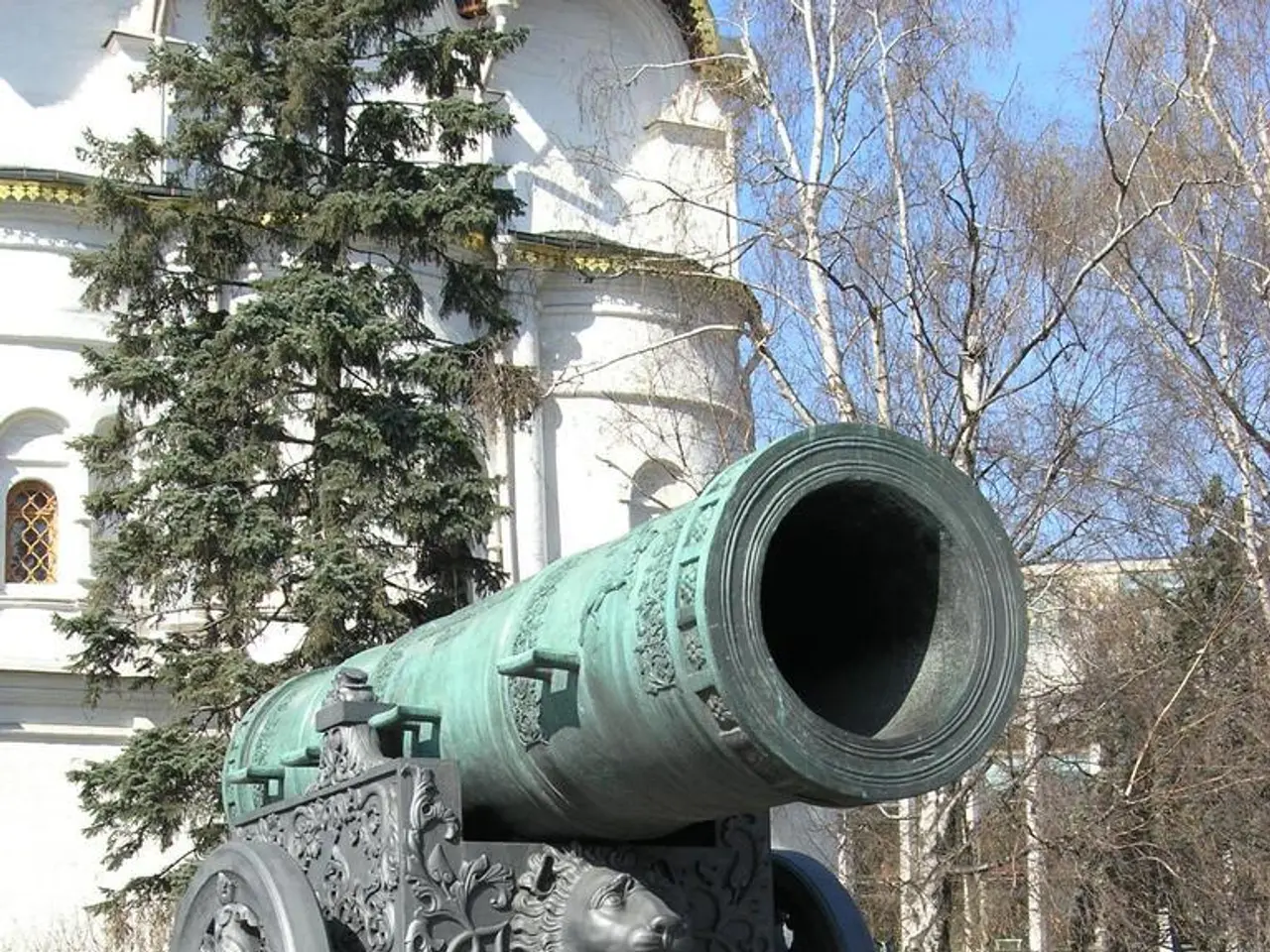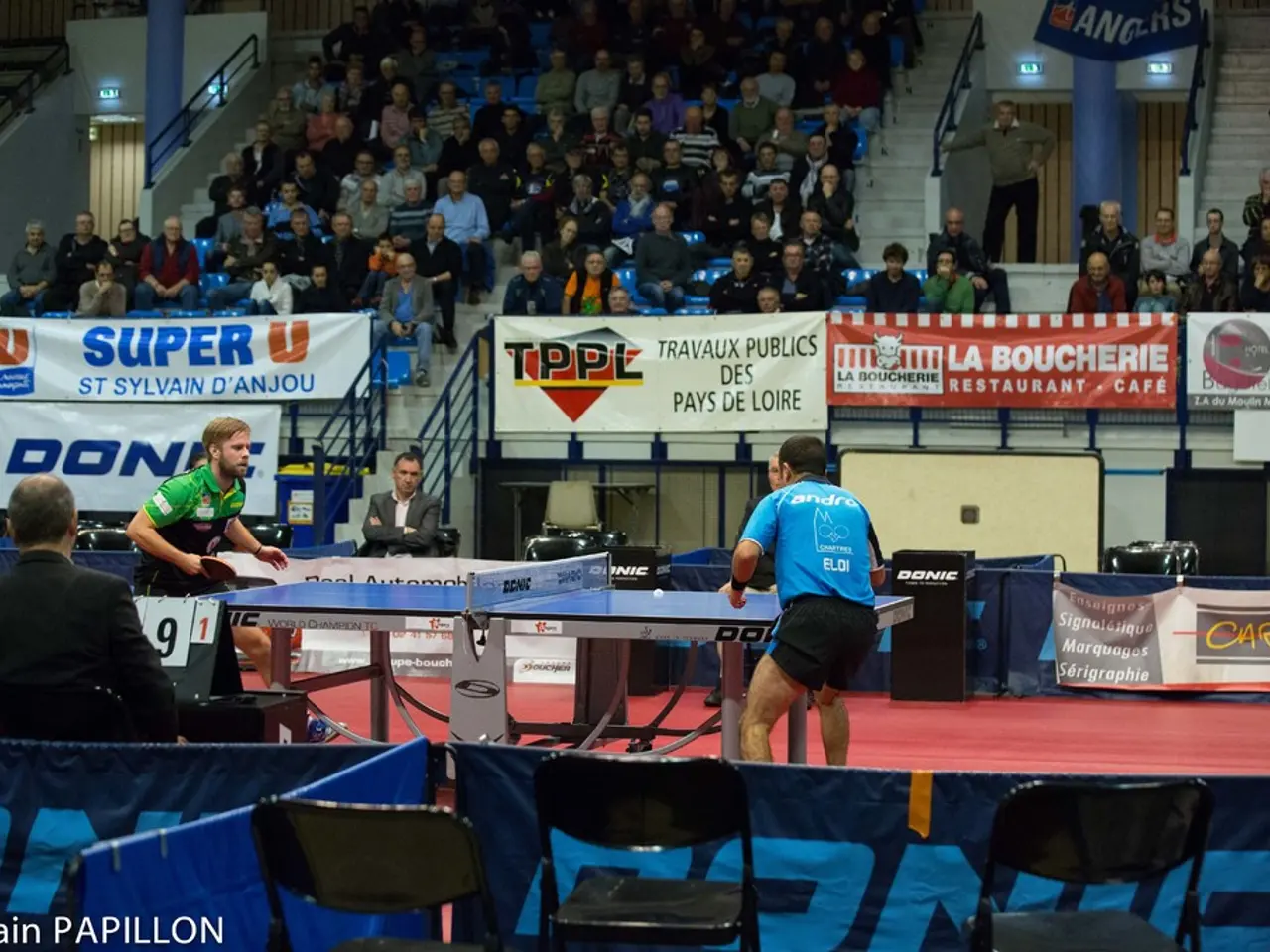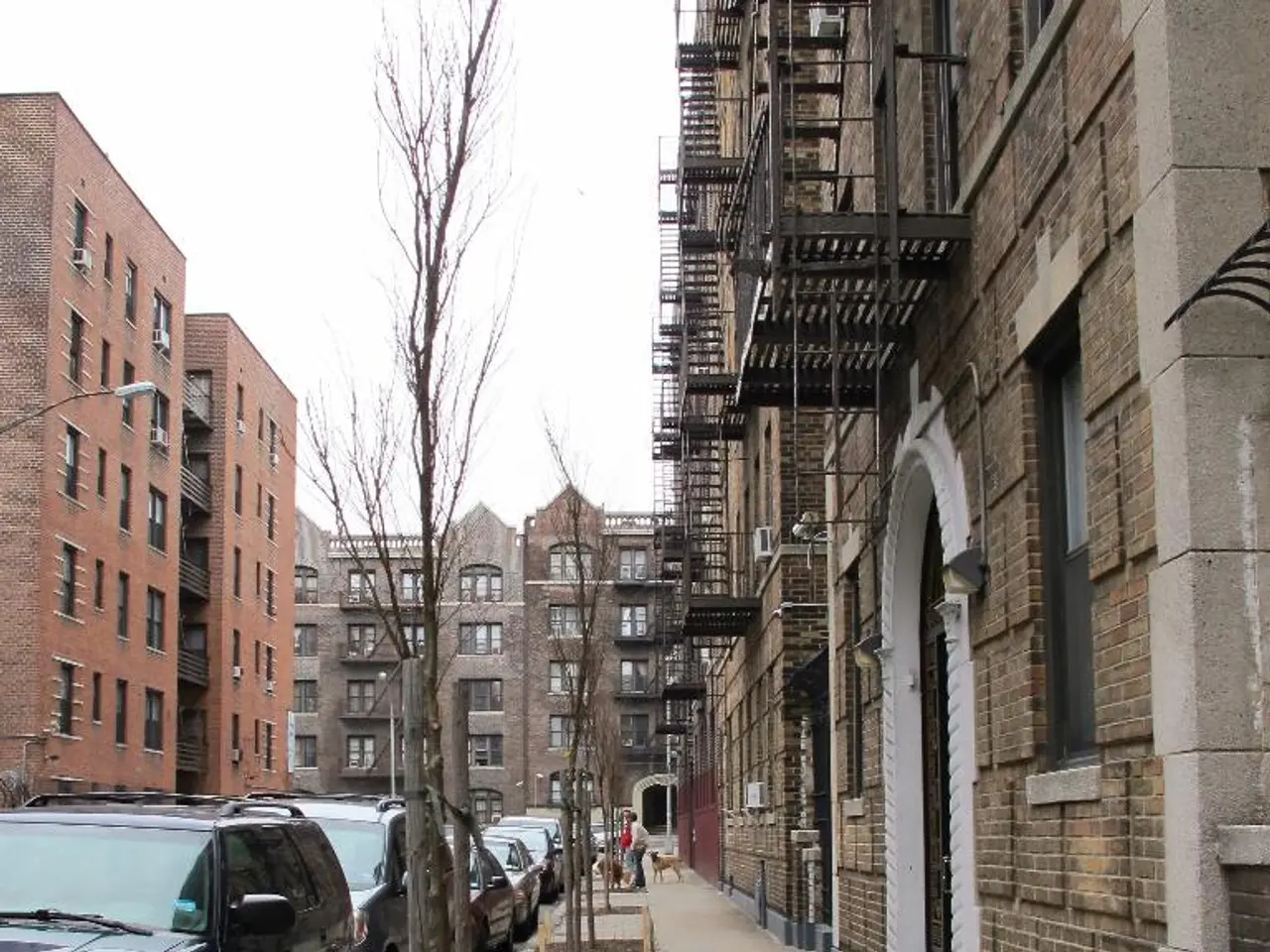War escalates between Israel and Iran: A standoff in the Middle East
Ongoing Conflict's Second Phase: Pursuit of a Diplomatic Resolution by European Powers
Geneva/Tehran/Tel Aviv — Tensions remain high a week into the conflict as Israel's airforce continues its relentless assaults on Iranian soil. The latest strike targeted Iranian long-range rocket systems, as announced by the Israeli military. Simultaneously, Germany, France, and Britain are diligently working on a diplomatic resolution. German Foreign Minister, Johann Wadephul, will meet with his French and British counterparts today in Geneva, alongside Iranian Foreign Minister, Abbas Araghtchi, for discussions.
Wadephul makes a plea to Iran for progress, but Araghtchi insists that a halt to Israeli attacks must be the precondition for negotiations.
The White House has hinted that U.S. President, Donald Trump, will decide in the coming two weeks whether the United States will intervene in the war against Iran, acting as Israel's key ally.
Diplomacy: The fine line
British Foreign Minister, David Lammy, who recently met with US Secretary of State, Marco Rubio, in Washington before the Geneva discussions, views Trump’s timeline as an opportunity for diplomatic resolution and urges against further escalation of the conflict.
French President, Emmanuel Macron, also advocates for diplomatic strategies. "Iran's nuclear program poses a threat, and we must not ignore this," Macron declared in Paris, "but no one can seriously believe that this is addressed through the ongoing operations." While some protected Iranian facilities remain inaccessible to inspection, uranium enriched to 60% reportedly remains elusive to locate.
A potential solution: Disarmament of the Iranian nuclear program
At present, it seems that the conflict will persist. Israeli Defense Minister, Israel Katz, ordered the military to intensify its attacks specifically targeting government facilities in Tehran to destabilize the governing regime.
The United Nations Refugee Agency (UNHCR) anticipates larger refugee influx from Iran, establishing contingency plans to address this growing crisis. There have been unconfirmed reports of refugees arriving from Iran in Armenia, Azerbaijan, and Turkmenistan, according to UNHCR chief, Filippo Grandi.
Unwavering Israeli euphoria
Recent air force attacks have destroyed rocket systems across Tehran and Isfahan, according to Israeli accounts. These strikes aim to expand Israeli airspace control throughout Iran.
Professor Simon Fuchs, Middle East expert and Islamic studies scholar at the Hebrew University in Jerusalem, suggests a sense of euphoria in Israel due to perceived military triumphs. Consequently, Israel currently shows little interest in reaching an agreement. Fuchs explained in an interview with the German Press Agency, "Israel is intent on depleting Iran of any military power and nuclear capabilities." If a fundamental shift in mindset does not occur, diplomatic negotiations led by Europe might prove fruitless, according to Fuchs.
A possible avenue for diplomatic progress, as suggested by Fuchs, would be persuading Iran to abandon all domestic nuclear enrichment activities, both military and civilian. However, Iranian authorities have consistently rebuffed this proposal.
Nevertheless, Fuchs believes that Iran might reluctantly back down without losing face, relying on the remaining power of their rocket forces and their recent successes against Israeli targets. The upcoming Islamic month of Muharram creates an opportunity for ideological justification in taking bold steps, according to Fuchs.
Tehran playing for time?
Pro-government rallies took place in Tehran after weekly prayers. Security expert Riad Kahwaji of the Dubai-based Institute for Near East and Gulf Military Analysis (Inegma) suspects that Iran is currently adopting a strategy of delay.
Tehran's representatives are rationing rockets and stemming the tide of domestic discontent through propaganda. A potential U.S. airstrike on the hardened Iranian nuclear facility at Fordow could halt a protracted conflict. However, the consequences of such an action, including Iran’s response, remain uncertain[1].
[1] It's important to note that Iran has repeatedly stated its intent to continue its nuclear program, and the diplomatic efforts led by Germany, France, and Britain are focused on bringing Iran back to the negotiating table where they would agree to dismantle and seal their nuclear facilities under international supervision, effectively ending the potential for nuclear weapon production. The most recent talks have resulted in a stalemate, but diplomatic efforts remain ongoing and are seen as the preferred method for resolving the war. However, if diplomacy fails and Israel lacks the capability to neutralize Iran’s nuclear sites, military options are considered. Recent developments have signified an escalation and prolongation of the conflict, with Iran's refusal to negotiate unless Israel ceases its attacks.
Diplomatic resolutions are urgently needed to avoid further escalation in the conflict between Israel and Iran, as advocated by British Foreign Minister, David Lammy, and French President, Emmanuel Macron. However, Israeli Defense Minister, Israel Katz, has ordered the military to intensify attacks on Iranian government facilities in an attempt to destabilize the regime, creating a potential deadlock in diplomatic negotiations. Meanwhile, according to Middle East expert Professor Simon Fuchs, Israel is intent on depleting Iran of any military power and nuclear capabilities, while Iran might be playing for time by adopting a strategy of delay and rationing rockets.
